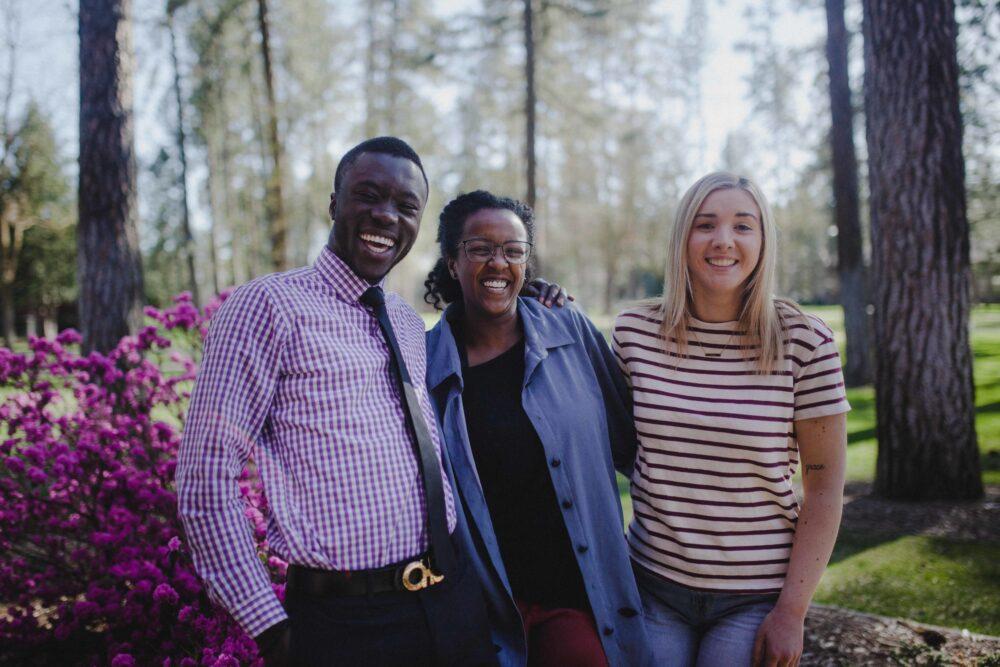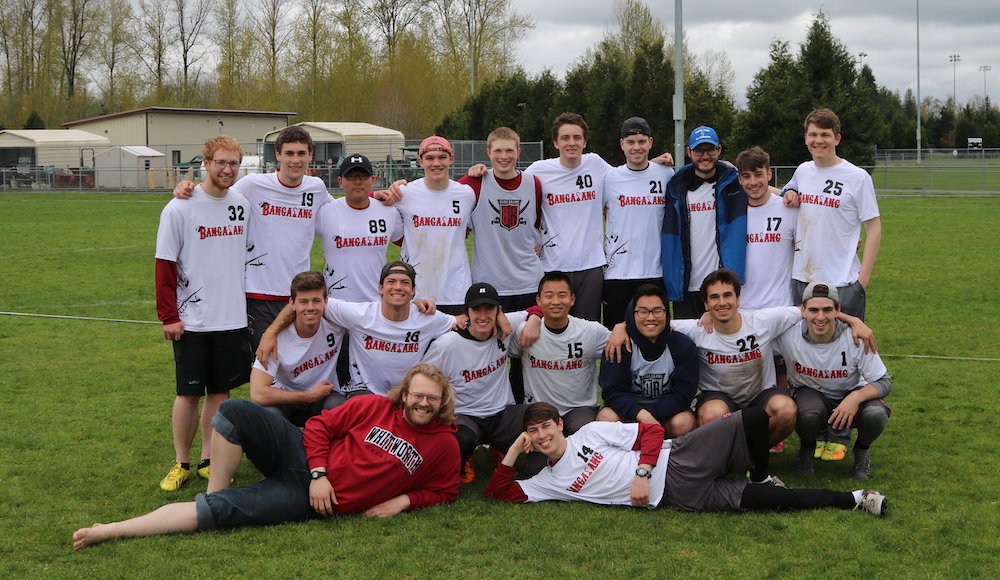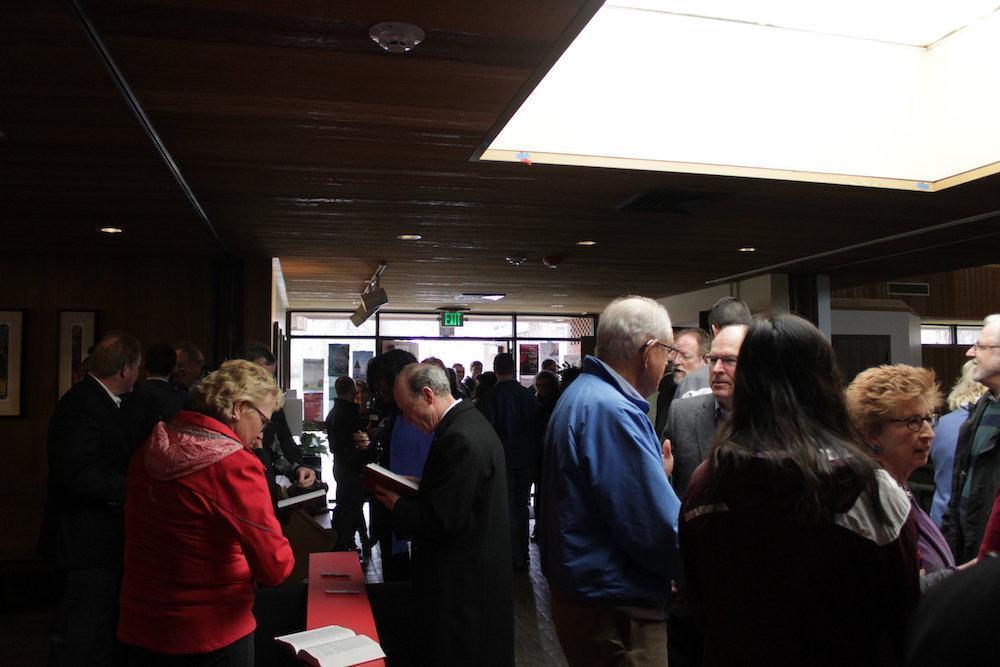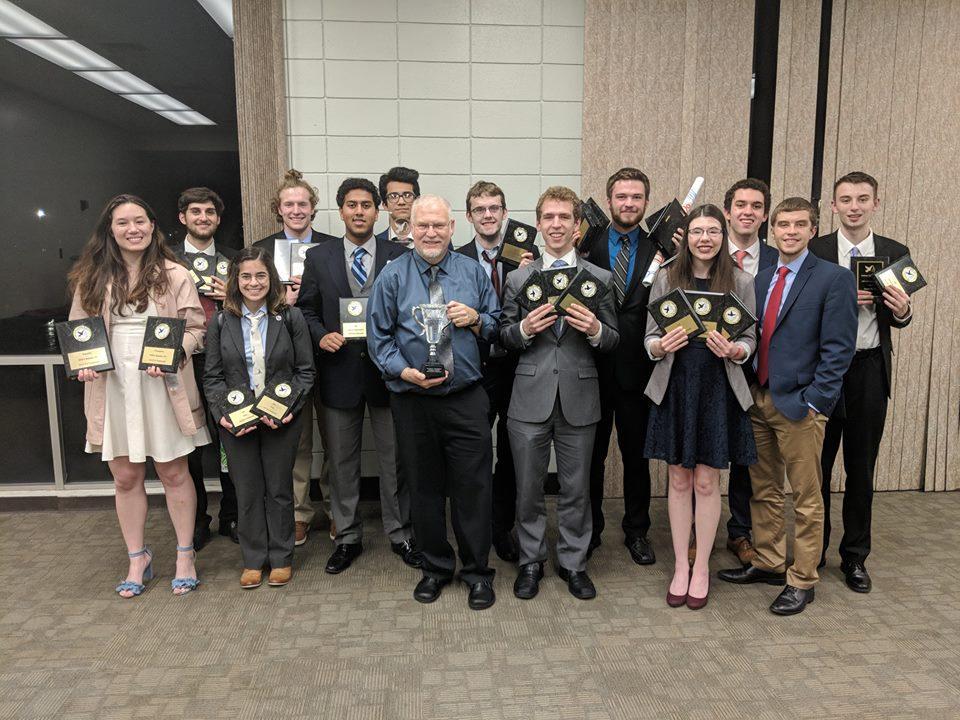President Beck Taylor created the President’s Colloquy series to discuss complex issues such as if one can disagree without being disagreeable while exploring the cognitive and psychological characteristics that influence them. The second discussion in the civil discourse series took place on Feb. 19. The keynote speaker for the discussion was professor Nathan King, philosophy, and speaking alongside him were professors Patricia Bruininks, psychology, Nicole Sheets, writing/storytelling, and Fred Johnson, American literature/media and film studies.
“Sometimes it’s appropriate to be disagreeable,” King said.
Civil discourse is conversation aimed towards achieving knowledge and understanding about others, King said.
After president Taylor introduced the discussion, King spoke about his perspective on the issue, saying that one can disagree without being disagreeable; however, there are common fallacies of disagreements that must be worked past and characteristics that must be developed if one wants to improve their civil discourse, he said.
Following King’s presentation, Bruininks spoke about the Triangular Theory of Love and the negation of intimacy that comes with being disagreeable. Sheets then spoke about how judgment is easier than investigation but good questions lead to good stories that make it easier to not judge another. The final speaker was Johnson who ended the discussion portion by presenting questions to consider when having deep conversations with others.
Most of the professors used Abraham Lincoln’s quote, “I don’t like that man. I must get to know him better,” in their speeches. That is the kind of mindset one should have when discussing complex issues with others, King said.
Since it is easier to judge someone before you get to know them, it’s important to ask good questions in good faith, Sheets said.
Although it is harsh, disagreement could lead to dehumanization, Bruininks said.
“It’s important that we’re having this discussion,” junior Kalani Padilla said. Padilla attended the second colloquy but was not on campus for the first.
Being intentional about having good conversations with other students after class or in the coffee shop is valuable, Padilla said.
The event concluded with a question portion where attendees could anonymously ask questions to the panel of professors.
Each colloquy so far has examined the quality of communication in a modern context. Each night, the panelists tell us how they believe we could all improve our ability to communicate with one another, junior Nicholas Bratt said. Bratt has attended both of the colloquies.
“I think it’s really interesting to hear messages that the president and the staff have to say here at Whitworth about things beyond just Whitworth,” freshman Chloe Casady, another student attendee, said.
Hearing Bruininks’ speech about how people cognitively and socially deal with disagreements and learning about the philosophical perspective from King was very interesting, Casady said.
The range of topics covered and the variety of disciplines represented has contributed to a rich discussion, Bratt said.
“I felt like I was able to see their individual personalities… not just what they’re studying or what their profession is but [also] their hearts,” Padilla said.
It was interesting that each professor got to prepare their ideas separately and share their own perspective on the matter, Padilla said. Sheets’ message touched on a significant idea that there are nine other stories to explore rather than just the one story that is overprivileged.
“We all strive to be intellects and have greater knowledge and wisdom about the world. Engaging the opposite view of an issue and of someone else’s differing opinions is going to get you more wisdom and help you to see the issue from all different angles,” Casady said.
In the final part of the colloquy series on April 16, 2018, Whitworth professors will discuss the idea of how much free speech is too much, Taylor said.














 Spokane?
Spokane?